|
Will your reader immerse themselves in your crime novel’s setting? Will the world you’ve built make sense, even if it’s a work of fantasy? And is it coherent? If you’re not sure, create a wiki.
A world-building wiki will help you keep track of your novel’s environment and the rules that govern it. And that will go some way to protecting your plot and maintaining a logical narrative.
‘But I write crime, not fantasy ...’ Even if your novel’s setting is the world as we know it right now, a world-building wiki is still useful. I live in a hamlet in Norfolk (the UK one). Some of the things I have to deal with in my day-to-day life are different to those of friends who live only ten miles away in the city of Norwich.
How does all of this relate to fiction writing?
One of my author clients bases his books in the Colorado Rockies. I know the lie of the land – how the weather affects the local population on a seasonal basis, how the pine smells in the spring, how the mountain passes are treacherous in the winter. Then there’s the town where the sheriff’s office is located. And it is a sheriff rather than a chief constable who’s in charge of this fictional county’s law enforcement. I know about the guns people carry, the idiomatic turns of phrase they use, and where they tuck their chewing tobacco when they speak. I live five thousand miles away and have never visited this region of the US, and yet I swear if I drove into that town with a flat tyre, I could locate the garage and a find place to grab a latte while the mechanic was fixing my car – without having to ask a soul. And that’s because my author is a great world-builder. He writes crime thrillers, but he never forgets that most of his readers aren’t cops; that many don’t even live in the US, never mind near the Colorado Rockies; and that no one lives in Rocky Points … because he made it up. Environments of the not-now and the not-here Crime fiction is as versatile a genre as any other. For not-here, think about Chris Brookmyre’s Places in the Darkness. The Ciudad de Cielo space station makes the Colorado Rockies seem like a mere hop. It’s crime fiction, but spacey! For not-now, how about C. J. Sansom’s Shardlake series. It’s crime fiction but the Tudor world in which our lawyer-detective operates bears little resemblance to that of a modern detective. And then there’s China Miéville’s not-here and not-now The City & The City. It’s a richly gritty world of hardboiled crime fiction where things don’t work in quite the same way. However, the narrative feels utterly reliable. All three authors are fine crime-writing world-builders, and their plots never unravel because the worlds they’ve shown us work. Your wiki and your plot Not everything in your wiki has to end up in your book, but all of the information will help you keep track of who’s who, what’s where, and how. That means you can keep the environment(s) in which your story is set coherent. Furthermore, if you decide to write a series, your wiki will help you maintain consistency across books. Even if you switch to a new location, even a new planet, and different rules come into play, it’s a space in which you can record the additional information and keep yourself on track. Let’s look at some of the elements you might include in your crime wiki. Physical environment Where does your story take place and how will the geography, geology and climate play with your plot? Does the landscape or the weather restrict or empower your characters, and if so, how? Real or fantastical, every world must obey its own scientific laws. Continuity is key, and your wiki will help you stay on track. Imagine your protagonist’s partner dies because the paramedic’s oxygen tank is empty, but they live on a world where the population breathes mainly nitrogen. Even your characters’ inhalations can blow a hole in your plot if you don’t keep track of the rules of your physical environment. If you’re setting a story in a real place that you’ve not visited, the wiki is where you record the details you’ll need to stop pedantic locals getting the hump when your hero sprints from the Tube station at Amersham to the next stop on the line. Chalfont & Latimer looks close by on the London Underground map, but trust me, it’s not for sprinting. Embankment to Charing Cross, yes! Culture, language and faith Use your wiki to record the ideas, customs, belief systems and social behaviours that distinguish your world, and how those will impact on your characters. Record also how your characters speak, and whether they are out of place in the setting, or fully integrated.
How will you reflect the way people speak in your world? Do people from the region in which the novel’s set have a particular idiom or dialect, and will you express this just through dialogue or in the narrative too?
Will you offer nudges here and there or include it consistently and heavily throughout the book? It goes without saying that if you include phrasing in a language you’re not fluent in, get it checked by someone who is. Google Translate is not the tool of choice here. Rules of governance Record who’s in control and how the rule of law works in your novel’s setting. If you’re mimicking reality, there might be variations not just between countries but also between states, counties, provinces or municipalities. Who makes the law? Who upholds it? What powers do they have? What are their titles? Who are they accountable to? What are the checks and balances that restrict them? And what does sentencing and punishment look like in the world you’ve created? How about the rules of engagement and the customary notifications given to characters apprehended by law enforcement? If a right-to-silence warning is given to a suspect arrested in the UK, and it’s referred to as a Miranda warning, your narrator’s reliability will be compromised. The term ‘caution’ is used in this neck of the woods. Make notes about the way the jurisprudence system works, and the rights of your world’s citizens in the locations you situate them. For example, time and place will determine how long a person can be held without access to legal representation, and how they might be punished if they’re found guilty of a crime. If your story is taking place in a fantastical setting, you can decide how all of this works. Still, your wiki will ensure there’s continuity in the way you apply your fictional rule of law to your characters. Science, technology, engineering and medicine ... and guns Your wiki is the perfect place to record essential information about science, tech and weaponry – what it is, how it works, who has access to it and what it’s used for. If you’re going for authenticity, make notes about how it works in the real world. How heavy is a Glock 19, and can a suppressor be attached to the barrel? What noise does a suppressed gun really make – is it just a pop or something louder? Years ago, I read a novel by a very well-known fantasy and horror writer. One of the subplots hinged on the DNA of a set of identical twins – one egg, one sperm, one zygote, which had split into two embryos. They had almost identical DNA. Only they didn’t because our twins were different sexes. That meant they were fraternal, not identical. The only thing they’d shared was a womb. A technical error pulled the plot to pieces. Food, drink and dress What do people eat and drink in this world, and how do they dress? Are there foodstuffs or materials that are restricted, impractical, unaffordable or impossible to access for some or all of the characters in your world? Does what people eat and how they dress indicate something about their status, their identity, their belief system, and what are the norms and rules surrounding their choices? Even if this information isn’t integral to the plot, it can still help your reader immerse themselves in your narrative as they experience the colours, textures, tastes and smells of the world in which your characters are moving. Heterogeneity in homogeneity As with real life, just because a group of people share a location, a job, a faith, doesn’t mean they’re all the same. Unless homogeneity is central to the plot, it can suck the soul from a novel because it’s unusual.
Any other quirks
Record information about any other quirks that are story-specific in a miscellaneous section. I nearly came undone with my own writing when embarking on a piece of flash fiction centred around where I live in Norfolk. During my research into pheasant shooting, I found out that my wee tale had come undone before I’d put a word on the page. Initially, I’d centred my plot around a crime being ignored during the summer because of the gunshots from legal pheasant-shooting parties.
Summing up
You can include whatever you need to in your wiki. Fundamentally, it’s about consistency and continuity, such that your plot isn’t plundered because you forgot something crucial about your world and how it works. More than that though, a reliable world is a believable world, even if it’s completely fabricated. When your readers feel like they can visit without having to ask where to grab a cuppa, you know you’ve built something beautiful.
Louise Harnby is a line editor, copyeditor and proofreader who specializes in working with crime, mystery, suspense and thriller writers.
She is an Advanced Professional Member of the Chartered Institute of Editing and Proofreading (CIEP), a member of ACES, a Partner Member of The Alliance of Independent Authors (ALLi), and co-hosts The Editing Podcast. Visit her business website at Louise Harnby | Fiction Editor & Proofreader, say hello on Twitter at @LouiseHarnby, connect via Facebook and LinkedIn, and check out her books and courses.
4 Comments
12/11/2018 01:49:50 pm
Lots of good idea for research. Just wondering,though--by using a wiki, do you mean setting up a wiki site and inviting people to contribute? If so, how is that done? If not, what kind of research format are you referring to? What tools, format, etc. would you recommend?
Reply
Louise Harnby
12/11/2018 08:01:51 pm
Hi, Norma. I'm talking about creating your own personal wiki - use Word, Excel, paper, whatever you want ... something that enables you to keep access, search in, and keep track of the world-building rules in your novel or series. I see this as a writer-centric thing, not something you'll share, because it's specific to the world you've built.
Reply
Lindsey Russell
16/11/2018 01:54:23 am
Only discovered your blog recently (through TSRA) and am loving it. Loads of useful,no frills information. This old girl from Suffolk (UK) will be making regular visits from now on.
Reply
Louise Harnby
16/11/2018 09:40:25 am
Hi, Lindsey!
Reply
Leave a Reply. |
BLOG ALERTSIf you'd like me to email you when a new blog post is available, sign up for blog alerts!
TESTIMONIALSDare Rogers'Louise uses her expertise to hone a story until it's razor sharp, while still allowing the author’s voice to remain dominant.'Jeff Carson'I wholeheartedly recommend her services ... Just don’t hire her when I need her.'J B Turner'Sincere thanks for a beautiful and elegant piece of work. First class.'Ayshe Gemedzhy'What makes her stand out and shine is her ability to immerse herself in your story.'Salt Publishing'A million thanks – your mark-up is perfect, as always.'CATEGORIES
All
ARCHIVES
July 2024
|
|
|
|


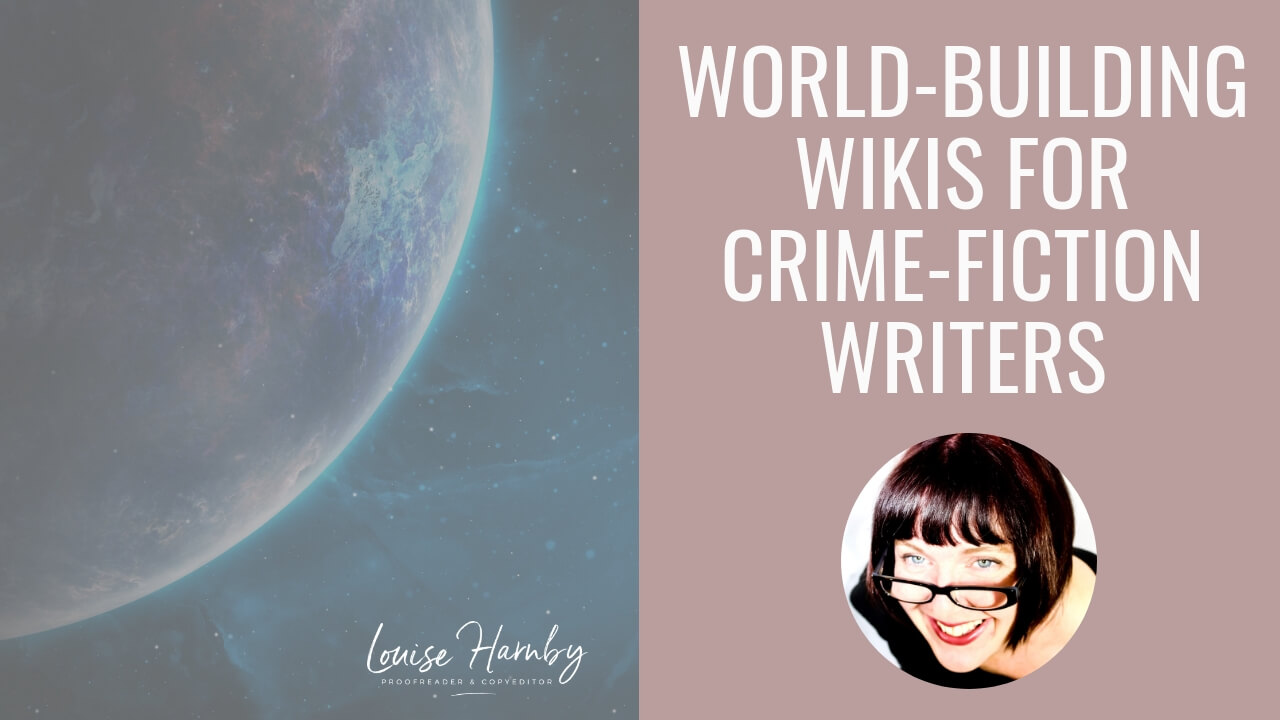

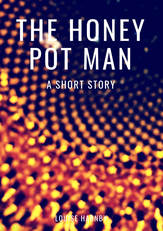
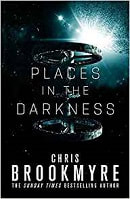
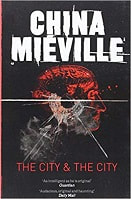
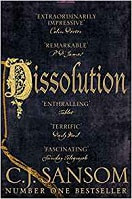
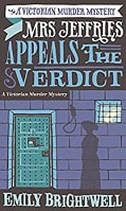
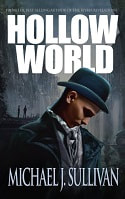
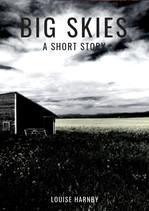













 RSS Feed
RSS Feed





